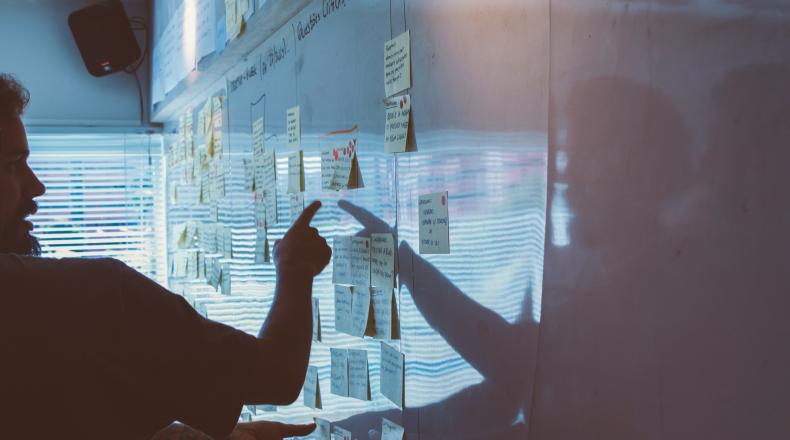What I Learned From Serving On AFP’s ICON Education Advisory Committee: 2019

Right about now, those of you who submitted proposals for AFP ICON 2020 in Baltimore are learning if your proposal was accepted. It is a good time to provide everyone with a reminder of the process for selecting the presentations that will be featured at AFP ICON 2020.
First, many thanks to Rebecca H. Davis, Ph.D., CFRE, for her great article, “What I Learned From Serving on AFP’s Conference Education Advisory Committee,” from 2016. Her article contains some great ideas for considering and putting together a conference session proposal. It’s well worth a read.
This article builds on Rebecca’s piece, providing some updates on the process for selecting sessions and my own thoughts on how you can increase the chances of your session being selected.
The Committee
The sixteen individuals who make up the ICON Education Advisory Committee are AFP volunteers who bring their unique skills, experiences and expertise to the selection process. These individuals devote many hours reviewing and rating over 300 proposed sessions.
While the face-to-face meeting of the committee is important, the selection process begins weeks in advance. The committee is divided into several working groups. Each of these groups is assigned approximately 65 submissions. Independently, the working group members review each submission, assign a numerical score and write a brief substantive comment about each presentation.
The face-to-face meeting begins with each working group reviewing the scores they submitted earlier and then ranking each submission based on those scores. This second screening results in a group of submissions that, in the next round, is reviewed by the full committee. Each working group presents their results to the entire committee.
The review and assignment of each submission takes an entire day. In the third round, the committee continues to discuss each of the remaining submissions, looking at the qualifications of the presenter, the timeliness and relevance of the topic area and the submission’s distinctiveness. The committee then reviews all remaining submissions to make certain all subject matter areas are covered, and that the number of sessions is sufficient to meet the conference schedule.
Updates to the Process
There are a few significant additions to the selection process which proved to be extremely helpful to the committee members as they reviewed their assigned proposals.
The AFP ICON 2020 proposal rating rubric is designed to help standardize the scoring process. The rubric provides 10 evaluation criteria. Each criterion has scoring range (1-5 levels) from poor to excellent. Thus, each reviewer has a common set of standards for determining their score.
Each committee member was also provided with a document covering adult learning principles. This resource provides guidance to potential presenters about how to incorporate adult learning principles and active learning into session design.
What I’ve Learned
One of the most important things you can do when submitting your proposal: ensure it has solid learning objectives that align with the presentation outline. The proposal submission form contains a section which asks for the expected learning objectives. The committee carefully reviews the learning objectives to determine if the objectives match the presentation outline provided and as important, if the presenter understands how to prepare learning objectives.
While catchy titles are good for marketing the presentation, many times the actual delivered product does not match the expectations created by the title. The best presentations provide the audience with the information and learning they expect.
There are far more submissions than there are presentation slots at ICON. Within that reality, it is important to understand that the committee goal is to recommend the “best” proposals to the AFP Global staff. The committee must also consider the timeliness and interest in certain topic areas, the international nature of the conference, diversity of sessions and presenters, and the unique distinctiveness that makes the conference great.
My Perspective
Over the years, I have submitted proposals for consideration at ICON. While having earned an ACFRE certification, a Master Teacher designation and being recognized as a Distinguished Fellow of AFP, my proposals have not been selected. However, I have been asked to present at AFP webinars, and to write articles for Advancing Philanthropy. If your proposal has not been selected, remember there are other ways that good proposals are recognized by AFP.
If you are new to the process, continue to present at the local chapter level, or other conferences. Hone your skills as an effective speaker who knows their topic and provides the audience with useful and impactful information. Build a solid reputation. And of course, keeping submitting quality proposals for ICON. Your time may come!
It is a privilege to serve on the AFP ICON Education Advisory Committee. See you at ICON 2020!
Vern Snyder, ACFRE, FAFP, retired from the University of Toledo as vice president for Institutional Advancement. He has 30 years of fundraising experience raising over $500 million. Vern is an AFP Master Trainer. He was recognized as the AFP Outstanding Fundraising Professional in 2016 and as a Distinguished Fellow of the Association of Fundraising Professionals in 2018. In addition to the ICON EAC, Vern is a member of the ACFRE Certification Board.

